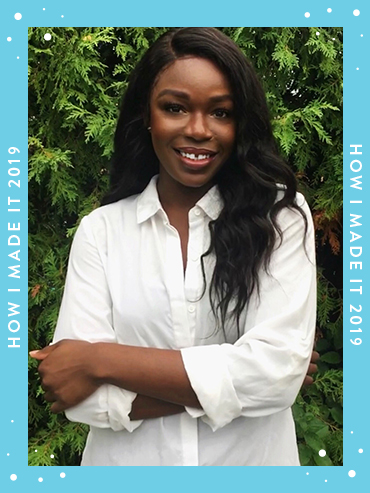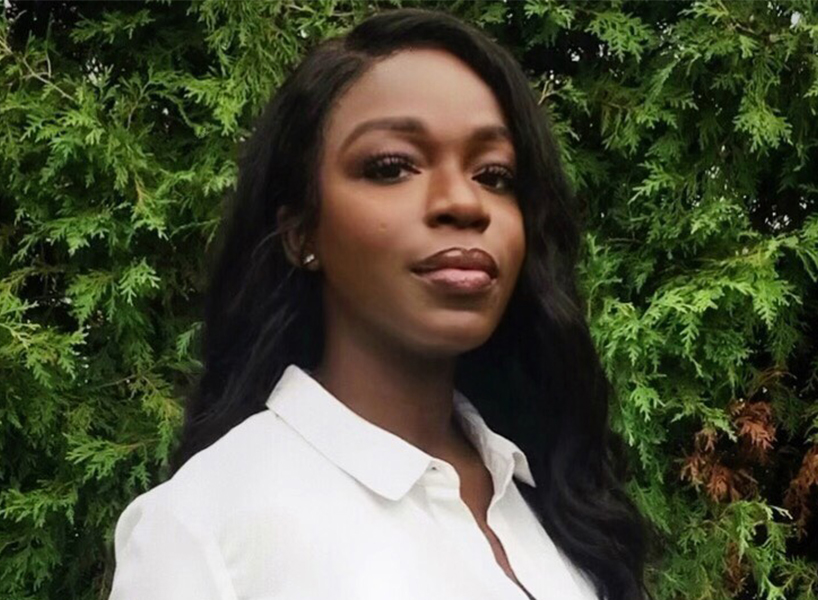This Rape Survivor Turned Her Trauma into a Career Helping Others
Joelle Kapinga Kabisoso on how she made it happen


Name: Joelle Kapinga Kabisoso
Job title: Founder, Sisters in Synch; client specialist, Legal Aid Ontario
Age: 23
From: Mbuji-Mayi, Democratic Republic of Congo
Currently lives in: Hamilton, Ont.
Education: BA in human ecology with a specialization in family studies, University of Western Ontario
First job out of school: Client specialist at Legal Aid Ontario
When Joelle Kapinga Kabisoso was a senior in high school, she was raped in a Montreal hotel room. She can’t tell you for sure how many men assaulted her out of the five who were there because her case was never really investigated—which she discovered after she requested the case file. From that trauma, a survivor was born.
Kabisoso went on to graduate university and took a job with Legal Aid Ontario, working with sexual-assault survivors. “A few months later, I received an email for a campaign called Violence 360 by Innovate Inclusion, which aims to raise awareness about and access to resources and programming for survivors of violence,” she recalls. “This campaign, coupled with the exposure and training I was receiving at [Legal Aid], launched my activism work and enabled me to write [about my rape] for FLARE and create Sisters in Synch.”
Sisters in Synch (SIS), based in Hamilton, Ont., is a network that aims to unite women and provide support through the transition from girlhood to womanhood. “The goal for SIS is to bridge the gap on lived experiences,” explains Kabisoso. “Oftentimes as women, we miss out on opportunities or do not participate or feel as though we are the only ones going through something. What SIS is trying to do is provide those experiences and support to everyone.”
People who work in high-trauma industries need a heightened sense of self-awareness so that they don’t burn out, and this can be hard to achieve. But what happens when a person in that field is also a trauma survivor? “The biggest challenge I’ve faced in my work has been dealing with vicarious trauma and reliving my own assault,” says Kabisoso. “At times it gets very difficult to not take on a client’s experience and become too attached. It wasn’t until I found myself actually crying with my clients and retraumatizing myself that I decided to attend therapy.” Kabisoso still goes to therapy and considers her healing a work in process.
SIS is big on encouraging and promoting therapy and self-care, especially for Black women. “I am a firm believer that we are the best versions of ourselves when we are taking care of ourselves,” says Kabisoso. “There is so much power in a strong Black woman, and I believe that tapping into our higher self starts with seeking help. We all carry generations of trauma, and it is very important to find healthy and productive ways to unpack and deal with it.”
FLARE Archived Content
To see the original article, search for it on the Flare archive: https://flare.fashionmagazine.com








